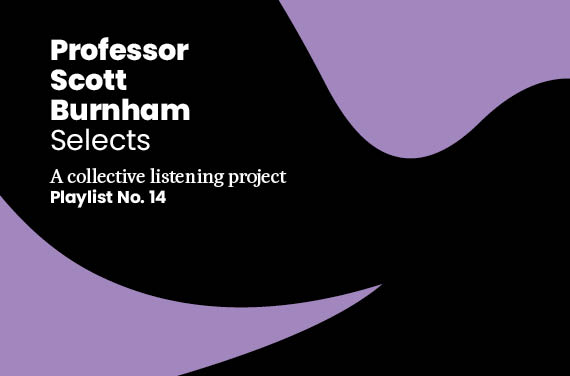Welcome to our 2024-2025 season!
Collective Listening Project
Professor Scott Burnham Selects
Playlist No. 14
About the Playlist
June 4, 2020

Professor Emeritus Scott Burnham, a frequent and beloved guide at our pre-concert Warm Up events, has curated several sets of “short and long” listening experiences to fill your week in the next installment of our Collective Listening Project. Here’s “The Long and the Short of It…”:
——————————————————————
THE SHORT OF IT
I begin with two pieces that vie for the honor of being the most beautiful three minutes in Western music. They’re both by Mozart, of course:
Ave verum corpus, K. 618. Mozart composed this brief motet during the last year of his life, for the Feast of Corpus Christi. With music that miraculously gets ever more beautiful as it progresses, Mozart stages the great Christian mystery of corporeal pain and spiritual redemption as a ravishing, yet quietly personal, revelation.
“Soave sia il vento,” the farewell trio from Mozart’s 1789 opera Così fan tutte. Instantly captivating, this number musically invokes the gentle winds it asks for in its role as a traveler’s benediction. The two sisters Fiordiligi and Dorabella (accompanied by the cynical Don Alfonso) are saying goodbye to their boyfriends, who are ostensibly sailing off to war (they are actually enacting the first move in a shameless deception designed to test their sweethearts’ fidelity), but they really seem to be saying goodbye to innocence itself.
THE LONG OF IT
Got an hour or more? Then you have time to get into the symphonies of Anton Bruckner. The quarantine could in fact be your opportunity to learn to appreciate the vast time scale of his symphonies (if you don’t already). Listen for how he revels in the sheer sound of the full orchestra. Brass players love Bruckner, because he creates cathedrals of symphonic sound, with brass in the place of honor. There are few things as electrifying as the sustained and often vividly animated orchestral harmony that concludes many of his symphonic movements. In these places, Bruckner seems to be offering praise to the Almighty with an almighty sound; not for nothing did he spend years as a church musician. His music exudes a kind of innocence, and he himself was reputed to be a rather childlike man. The great music critic Donald Francis Tovey once suggested that you should listen to Bruckner “with the humility you would feel if you overheard a simple old soul talking to a child about sacred things.”
I would begin with Bruckner’s Seventh Symphony (perhaps my favorite). There are few things more beautiful than the exquisite opening of his first movement (and those few things are already on this playlist!). And by the way: if you are not deeply stirred by the endings of his first and final movements, you should never again check one of those “I am not a robot” boxes online.
For an even huger experience, invite the 60-something Franz Joseph Haydn into your home by taking in his two towering oratorios, The Creation and The Seasons, both composed around 1800. Play them back to back! Taken together, Haydn’s Creation and Seasons extend from the beginning of Time to the end of Time: from God’s creation of the universe to our eventual ascent into heaven after death (after Winter, the last of his Seasons). There are many astonishing numbers along the way, some pastoral, some sublime (the creation of light), some downright funny (the drinking song from Autumn). Let Haydn out-Wagner Wagner—make a day of it, with breaks between the three Parts of the Creation and between each of the four Seasons. You won’t regret experiencing the full extent of this immensely gratifying celebration of nature and the human experience.
BEETHOVEN, SHORT AND LONG
I hope you didn’t think I would forget Beethoven, especially in 2020, as we celebrate his 250th birthday. First up is the briefest piece of his I can think of, namely the tenth Bagatelle in his Bagatelles for piano, Op. 119. At a little over ten seconds long, you won’t even be able to wash your hands to it! But you might as well take in the entire set of 11 Bagatelles, composed at various times of his life but assembled together for publication in 1823. They offer brief forays into lighter frames of mind than we are accustomed to hear from this composer.
One of Beethoven’s longest works is the Missa Solemnis, which he himself considered to be his greatest achievement. It was premiered in St. Petersburg in April 1824, just one month before the Ninth Symphony was premiered in Vienna. The Missa Solemnis will last about an hour and 15 minutes, depending on the performance. I’ve always enjoyed Otto Klemperer’s performance, perhaps a bit old fashioned these days but deeply felt. If for no other reason, I recommend it for the overpowering way he performs the phrase “Pater omnipotens” (almighty Father) in the Gloria, but also for the way one can actually hear the separate voices in the hair-raising fugue on “Et vitam venturi” toward the end of the Credo. John Eliot Gardiner conducts my favorite modern performance.



